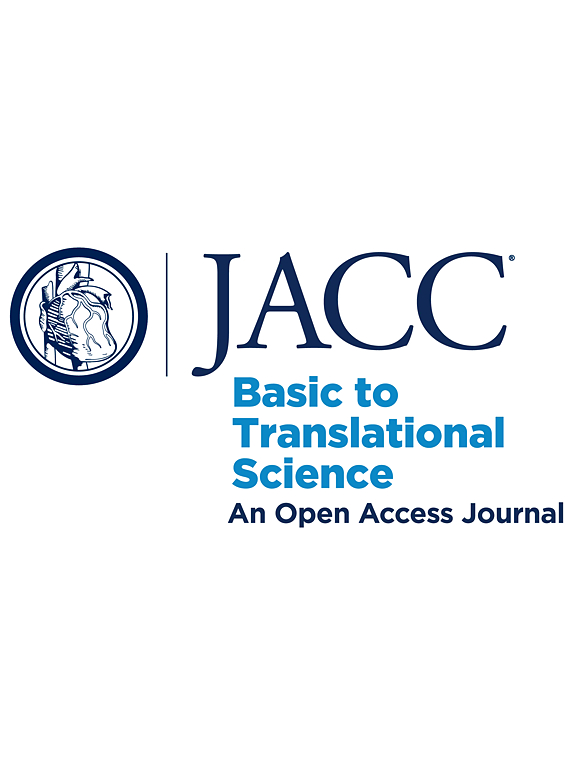冠状动脉疾病患者的心包液能通过 TGF-Beta 通路促进纤维化
IF 8.4
1区 医学
Q1 CARDIAC & CARDIOVASCULAR SYSTEMS
引用次数: 0
摘要
人体心包积液(PF)蕴藏着丰富的生物活性标志物。心包积液的无细胞区可在体外驱动心脏成纤维细胞的活性。这一过程是通过转化生长因子-β途径介导的。具有重要临床意义的是,与没有冠状动脉疾病的患者相比,冠状动脉疾病患者的心脏成纤维细胞具有更强的坏死能力。本文章由计算机程序翻译,如有差异,请以英文原文为准。
Pericardial Fluid of Patients With Coronary Artery Disease Can Drive Fibrosis Via TGF-Beta Pathway
Human pericardial fluid (PF) is a rich reservoir of biologically active markers. The acellular compartment of PF can drive cardiac fibroblast activity in vitro. This process is mediated through the transforming growth factor-β pathway. Of clinical importance, the PF of patients with coronary artery disease has an increased profibrotic capacity compared with the PF of patients without coronary artery disease.
求助全文
通过发布文献求助,成功后即可免费获取论文全文。
去求助
来源期刊

JACC: Basic to Translational Science
CARDIAC & CARDIOVASCULAR SYSTEMS-
CiteScore
14.20
自引率
1.00%
发文量
161
审稿时长
16 weeks
期刊介绍:
JACC: Basic to Translational Science is an open access journal that is part of the renowned Journal of the American College of Cardiology (JACC). It focuses on advancing the field of Translational Cardiovascular Medicine and aims to accelerate the translation of new scientific discoveries into therapies that improve outcomes for patients with or at risk for Cardiovascular Disease. The journal covers thematic areas such as pre-clinical research, clinical trials, personalized medicine, novel drugs, devices, and biologics, proteomics, genomics, and metabolomics, as well as early phase clinical trial methodology.
 求助内容:
求助内容: 应助结果提醒方式:
应助结果提醒方式:


